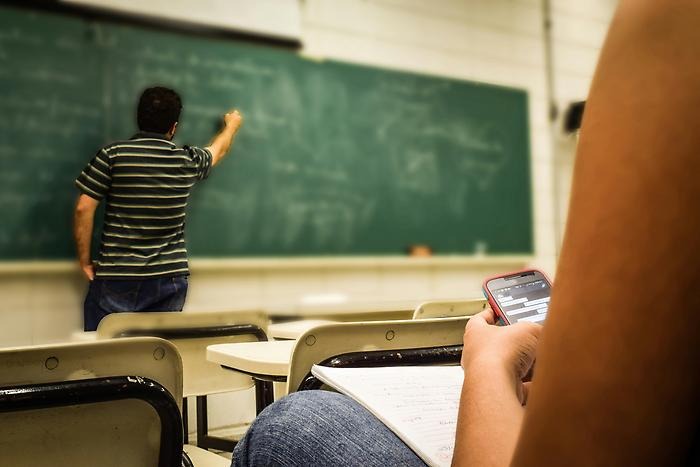Teaching is influenced by the prior knowledge of the class
The prior knowledge that a school class has affects teachers' teaching and thereby also students' results. This is according to new research from the School of Education and Communication (HLK) at Jönköping University (JU). Pontus Bäckström's dissertation is about the importance for a student to be in the right class with the right classmates.
%20pexels-pixabay-159844.jpg)
Previous research on peer effects in school education shows that all students benefit from being in a class with higher-performing students. How much they benefit varies for different students. Pontus Bäckström has researched why this happens and what the reasons are.

Pontus Bäckström. Photo: Lisa Broström
“There are of course several factors that affect this. One factor is the study environment, whether it is noisy or not. But another factor that seems important, and which I explore in my thesis, is how the teacher is affected by the class composition. By combining two theoretical models, I investigate if and how this happens," says Pontus Bäckström.
Impact on individual student performance
The results show that the teacher's teaching is to some extent governed and limited by the composition of the class, including the prior knowledge of the class. For example, what the class already knows affects the content that the teacher can cover in the lesson and how time can be allocated. This also affects the performance of individual pupils.
Read Pontus Bäckström´s dissertation "Exploring mechanisms of peer effects in education: Frame factor analyses of classroom instruction" here. External link, opens in new window.
“Above all, I think the thesis shows that when we study classroom teaching, we cannot consider the teacher as an independent variable. The teacher and the teacher's teaching are affected by the conditions that are given, where the composition of the class is a crucial factor. How should a mathematics teacher teach percentage calculation if a very large proportion of the class can neither multiply nor divide,” he says.
The role of the teacher
Bäckström's research shows that the teacher has a significant impact on student performance. A student's perception of having a teacher who is clear in teaching and provides support and help is associated with higher student achievement. However, the results show that these teacher characteristics, at the classroom level, do not seem to be able to offset the negative effects of class composition on individual student performance.
“This is important from a policy perspective. There are statements in the debate that maintain that the most important thing for students, even if they attend socially disadvantaged schools, is that their teachers have 'high expectations' of them. While it is true that this is important, my results indicate that high expectations cannot compensate for the controlling and limiting effect that class composition can have on the teacher's teaching. To say otherwise is deeply unfair to the teachers in these schools,” argues Pontus Bäckström.
The thesis is based on three different studies of data for Swedish secondary school students. Two of the studies are based on Swedish data from the international survey TIMSS (Trends in International Mathematics and Science Study).
“This means that the results can only be generalized in a strict sense to this framework population, but in a general sense my results fit well into a broader international literature, which is why the key features of the results are very likely to be found in the entire primary and secondary school system,” concludes Pontus Bäckström.
Pontus Bäckström is a licensed teacher and is authorized to teach social studies and philosophy. In addition to working as an upper secondary school teacher, he has also worked at the Swedish Schools Inspectorate and the Ministry of Education. In parallel with his doctoral studies (which ended on 8 March), he works as Head of Social Policy at the Swedish Teachers' Association in Stockholm. Last winter, he also accepted the assignment as a special investigator for the government.
